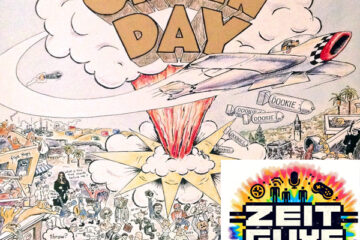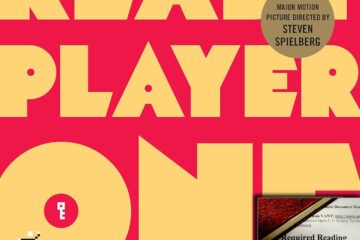The Declaration of Independence by Lauren Polli
The Declaration of Independence is arguably the most famous, most important, and most dangerous document to come out of the United States. The five writers of the Declaration are: Thomas Jefferson, John Adams, Benjamin Franklin, Robert Livingston, and Roger Sherman.
They spent weeks working on it and perfecting it before they sent it to Parliament and declared their independence. Along with motivating the colonists, it inspired people around the world to rebel against their governments. It opens with the line “When in the course of human events…” which alludes that Jefferson and the founding fathers know that their document is making history. They know that it will be read by millions of people. They know that in all of humanity’s history, this is important.
The document then goes on to say that the colonists deserve the right to rebel against the government. They insult the king, saying that he is not worthy to rule, and that Americans need to overthrow the government and “provide new Guards for their future security.” Then there is a litany of offenses the king has committed against the colonists. The litany of twenty-seven transgressions ends with ones that insinuate a sense of urgency, a need to act soon.
One of these bullet points is “He has plundered our seas, ravaged our coasts, burnt our towns, and destroyed the lives of our people.” Jefferson is painting the British, specifically the king, as the villain. They also write, “He is at this time transporting large Armies of foreign Mercenaries to compleat the works of death, desolation, and tyranny, already begun with circumstances of Cruelty & Perfidy scarcely paralleled in the most barbarous ages, and totally unworthy the Head of a civilized nation,” This is another example of the Americans saying that the king is unfit to rule, that he is not worthy. All of these facts they listed lead to the conclusion that the King has wronged them and is not a worthy leader.
The Declaration of Independence ends with a paragraph of them officially declaring their independence. With the line “That these colonies are, and Right ought to be Free and Independent States, that they are Absolved from all Allegiance to the British Crown,” they are severing themselves from the British government, and announcing that they are no longer part of Great Britain, they are their own nation with their own government.
The Declaration of Independence by Bridget Durham
“We hold these truths to be self-evident, that all men are created equal, that they are endowed by their creator with certain unalienable Rights, that among these are Life, Liberty, and the pursuit of Happiness.” This famous line from Thomas Jefferson’s Declaration of Independence was used to influence the population at the time during the Revolutionary War.
Even after the American Revolution, Thomas’ words would be used to inspire thousands of people all over the world. At the beginning of the American Revolutionary War many Americans were on the fence about the war, so he wrote this piece to swing them towards the patriot side. The manifesto was written to fire Americans up to stop the moral decay of the troops and to remind them that they had to fight in this war.
Jefferson’s use of anaphora by referring to the colonists as “us” and the British as “them/they,” displays a prominent disconnect between the Revolutionaries and British. Although the British provoked them, Americans still needed to feel secure in their reasons for revolting due to the nature of war. They did not want to be involved in unnecessary murder because of their religious beliefs; so, Jefferson made a list of every grievance Britain had committed against them to display their belief that war had become inevitable. An example from the litany is, “For imposing Taxes on us without our consent.” The imposition of taxes without consent of the Americans was a major reason for rebellion, especially in New York, where parliament had dissolved the legislature. “No taxation without representation,” inevitably became one of the war’s slogans.
Jefferson’s religious beliefs also play a role in the writing of this declaration. He believed in Deism which is the belief that there is an all-powerful God, but he does not interfere with human activity. He refers to God as the “supreme judge” but other than that he only refers to God one other time in the proclamation. Jefferson does not say that God is necessarily on the Americans’ side, but he does invoke his protection. The lack of references to God shows how as the years progressed, the more Americans drifted away from their Puritan beliefs which was the original motive for leaving Europe.
An example of the further disconnect is when Jefferson states “it is the Right of the People to alter or to abolish it, and to institute a new government.” “It” in the quote is referring to the government. This is similar to the social contract by Jean Jacques Rousseau except he tells the people that it is their duty to abolish the government. Jefferson is telling people that fighting is not an option anymore, it is something that must be done. He then starts to provoke the British by calling the king a prince. “A prince whose character is thus marked by every act which may define a Tyrant, is unfit to be the ruler of a free people.” He is trash talking the king by calling him childish and ill-fit to run a group of exceptional Americans. In conclusion, Thomas Jefferson’s Declaration of Independence is a beautifully constructed influential work of literature that was quite literally revolutionary.
The Declaration of Independence by Kennedy Mosley
In 1774, Britain imposed many taxes and laws on the colonists and gave the colonists no say in the matter. In defiance, the colonists retaliated by throwing tea imported from Britain into the harbor. As a result, Britain enforced even more laws on the Colonists called the Intolerable Acts and the Quebec Act. These new laws were the final straw for the colonists and they finally decided they no longer wanted to be under British rule. In response to this John Adams, Benjamin Franklin, and Thomas Jefferson wrote The Declaration of Independence to let Britain know that they were officially independent. The Declaration of Independence was an important document at the time because it was one of the final steps in uniting the colonies, and fighting for justice.
The Declaration of Independence argues that a war between Britain and the Colonists is inevitable. The Declaration of Independence states everything that Britain has done against the Colonies. However, the authors presented their grievances against Britain in a vague manor to ensure that the declaration encapsulated the struggles of all the colonies. For example, in the declaration, the authors describe an event like Boston Massacre, but do not specifically mention it by name. These generalizations were made so that the colonists who resided in the south could also relate to the injustices of Boston. In addition, the authors exaggerated some events to rally the colonists, and make them more upset with Britain. For example, the authors used overly grim words in describing Britian’s actions against the colonists such as plundered our seas, ravaged our coasts, and destroyed the lives of our people. Not only are these words broad so any colonist can relate to them, but they are also very strong words that illustrate the extent to which England has truly hurt the colonies.
One of the several purposes of the Declaration of Independence was to show the colonies the urgent need to fight for justice. Throughout the document, the authors stressed all that Britain had done to wrong the colonies, but never said what the colonists should do about it. However, at the end of the document, the authors declare what the colonists should do: declare war on Britain. Although the colonies are free by their standards, they must fight for true independence as Britain is unwilling to leave America quietly. The last line states that the colonies “mutually pledge to each other [their] Lives, [their] Fortunes, and [their] sacred Honor.” Every individual who signs the Declaration of Independence is supporting the revolution and is risking their life as an enemy of Great Britain. The Declaration of Independence was the colonies’ final step in officially declaring their independence from Britain and fighting for justice.


